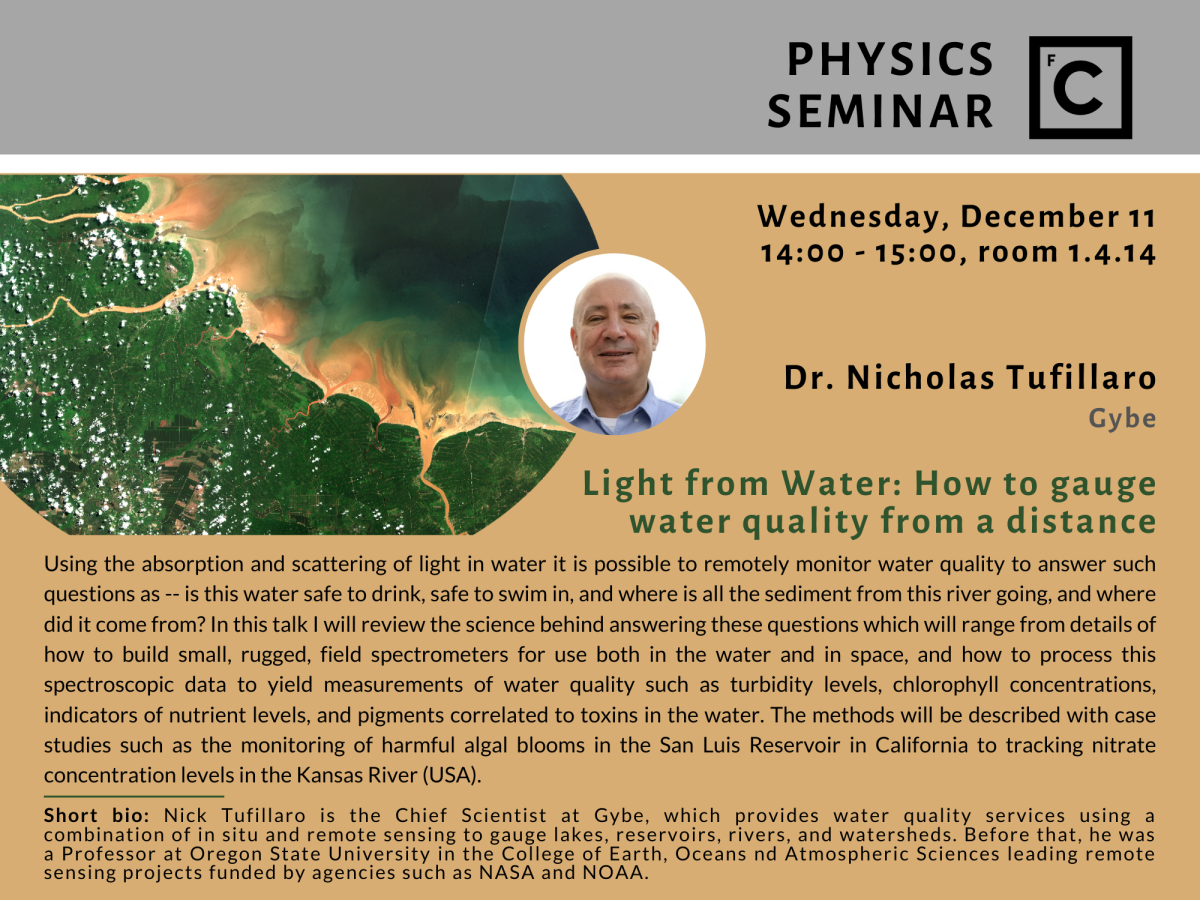Por Nicholas Tufillaro (Gybe).
Using the absorption and scattering of light in water it is possible to remotely monitor water quality to answer such questions as -- is this water safe to drink, safe to swim in, and where is all the sediment from this river going, and where did it come from? In this talk I will review the science behind answering these questions which will range from details of how to build small, rugged, field spectrometers for use both in the water and in space, and how to process this spectroscopic data to yield measurements of water quality such as turbidity levels, chlorophyll concentrations, indicators of nutrient levels, and pigments correlated to toxins in the water. The methods will be described with case studies such as the monitoring of harmful algal blooms in the San Luis Reservoir in California to tracking nitrate concentration levels in the Kansas River (USA).
Short bio: Nick Tufillaro is the Chief Scientist at Gybe, which provides water quality services using a combination of in situ and remote sensing to gauge lakes, reservoirs, rivers, and watersheds. Before that, he was a Professor at Oregon State University in the College of Earth, Oceans nd Atmospheric Sciences leading remote sensing projects funded by agencies such as NASA and NOAA.
B.A. Physics, Reed College, Portland, Oregon
Ph.D. Physics, Bryn Mawr College, Bryn Mawr, Pennsylvania
1982-1984 Senior Technical Associate, Bell Labs, Murray Hill, New Jersey
1989 Fulbright Fellow, University of Otago, Dunedin, New Zealand
1990 NSF Postdoctoral Fellow, University of Warwick, UK
1991 Postdoctoral Fellow, Woods Hole Oceanographic Institution, Woods Hole, Massachusetts
1992-1995 Postdoctoral Fellow, Los Alamos National Laboratory, Los Alamos, New Mexico
1996-2009 Member of the Technical Staff, HP/Agilent Labs, Palo Alto, California
2010-2022 Associate Professor, College of Earth, Ocean, and Atmospheric Science,
Oregon State University, Corvallis, Oregon
Current: Chief Scientist, Gybe, Portland, Oregon






